World Rhino Day is celebrated every year on September 22nd. This special day signifies a global initiative dedicated to the preservation of the world’s five rhino species, all of which are teetering on the brink of extinction. Rhino Day serves as a poignant reminder of the importance of rhino conservation efforts and anti-poaching operations. Rampant poaching, the asian rhino horn trade, and habitat loss has created an urgent need to protect these vulnerable creatures.
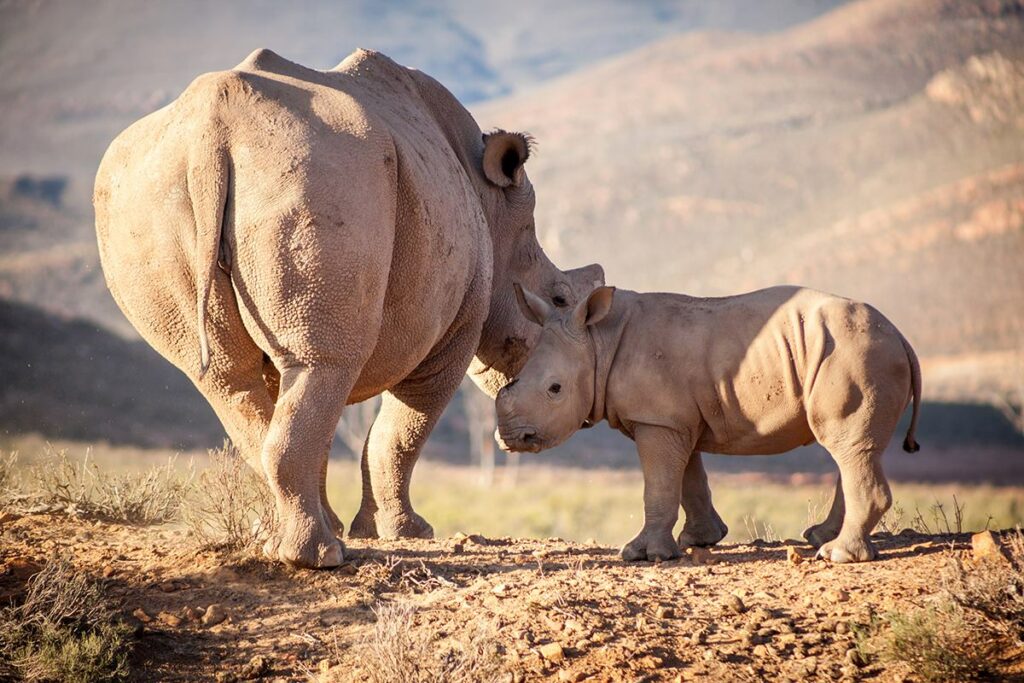

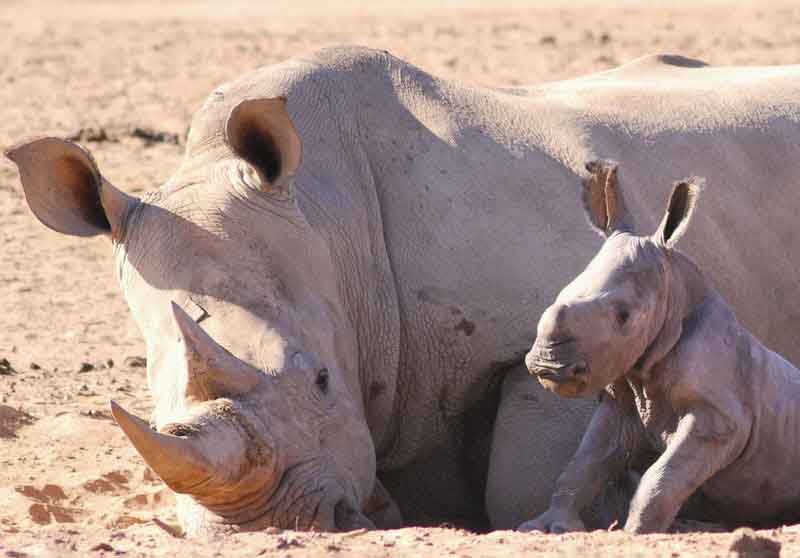

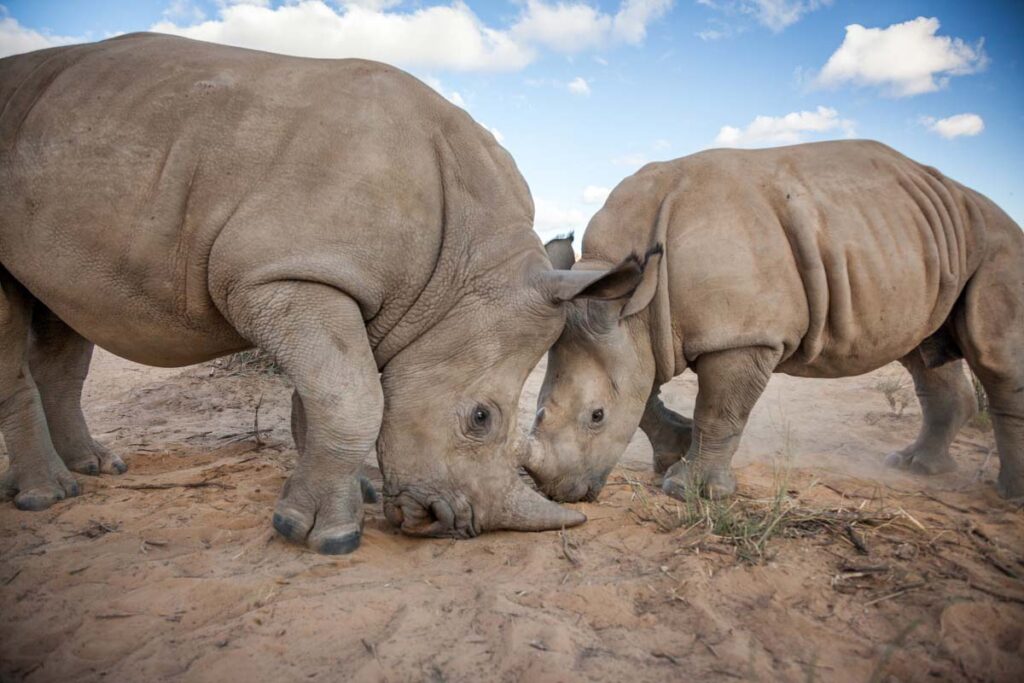

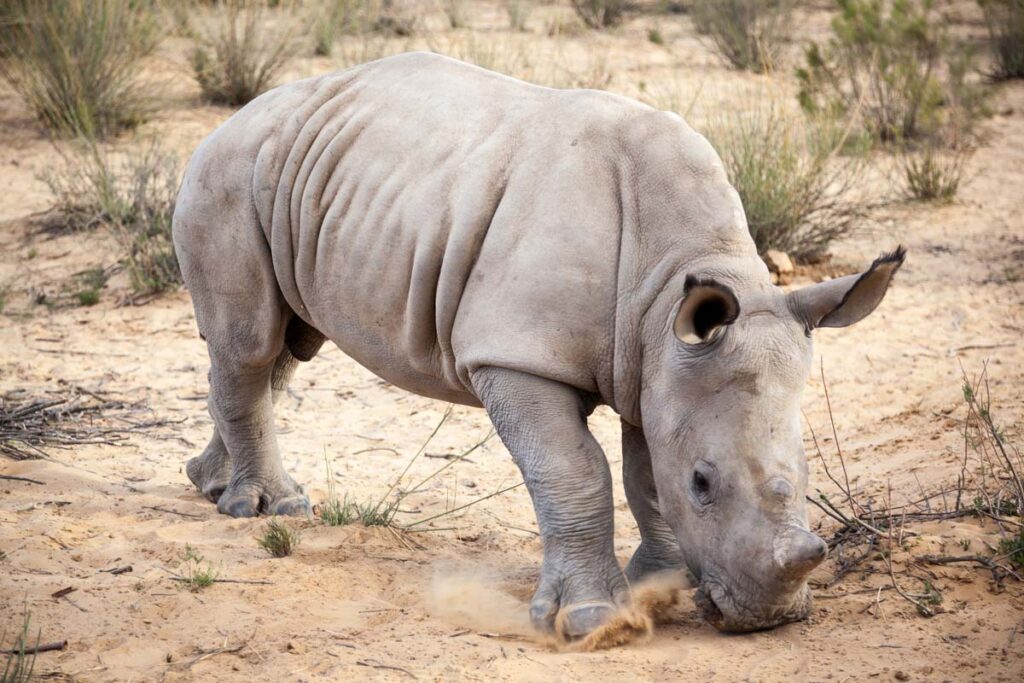



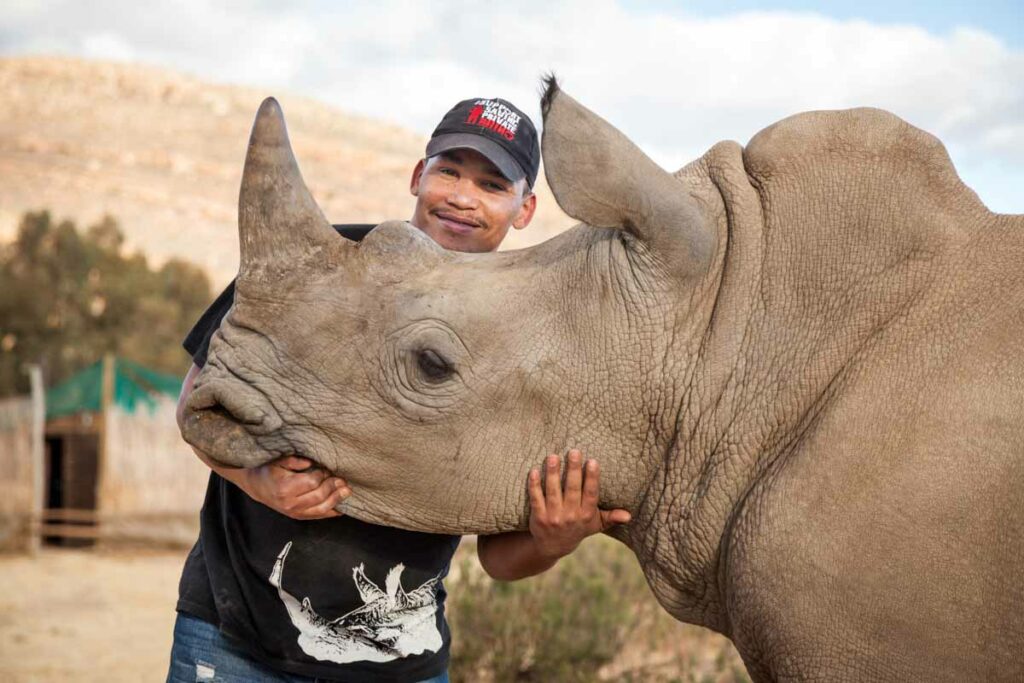

World Rhino Day is celebrated on September 22nd every year.
World Rhino Day is important because it draws attention to the critical issues facing rhinos, including poaching and habitat loss. It serves as a platform for global advocacy and fundraising efforts to protect these endangered animals.
On average, one rhino is killed every 16 hours. Most of the rhinos poached last year were killed in Namibia and South Africa.
With little support from the government, outdated tools and equipment, and a lack of funds available for private game reserves, these numbers are projected to rise each year.
There are several ways to show your support. You can participate in events organised by conservation groups, donate to rhino conservation efforts, educate others about rhino conservation, or even organise your own awareness-raising activities.
Yes, all five species of rhinos are currently classified as endangered or critically endangered. These species are the black rhino, white rhino, Indian rhino, Javan rhino, and Sumatran rhino.
The biggest threat to rhinos is poaching. The rhino horn trade, fuelled by ever-increasing demand from Asia, is wiping out the world’s rhino populations at an alarming rate.
The international trade in rhino horn is illegal, and so any “value” given to the product is a black market value.
It is important to note that rhino horn is made up of keratin, the same substance your fingernails are made up of, and any perceived ‘medicinal’ qualities or ‘value’ rhino horn is claimed to have, is based on superstition and cultural beliefs.
World Rhino Day, held on the 22 September every year, celebrates all five species of rhino: Black, white, greater one-horned, Sumatran and Javan rhinos.
World Rhino Day was first announced by WWF-South Africa in 2010. It brings together NGOs, zoos, rhino sanctuaries, and concerned citizens across the world in a momentous effort to help raise awareness and collect donations for the five species of rhinoceros — all of which are under threat from the illegal rhino horn trade.
By 2011, the alarming gravity of the rhino poaching crisis had become overwhelmingly evident, with only 30,000 rhinos remaining across the entire planet. It was during this pivotal moment that the World Wildlife Fund – South Africa made a significant announcement, unveiling “World Rhino Day” in an effort to generate awareness about the poaching crisis and highlight the importance of safeguarding this integral keystone species and prominent member of the Big 5.
Lisa Jane Campbell and Rhishja Cota, passionate advocates for rhino conservation, reached out to fellow rhino enthusiasts, non-profit organisations, wildlife conservation centres, zoos, corporations, and the public to raise awareness and find an effective approach to stop rhino poaching. This profound movement gave rise to World Rhino Day, which continues to be commemorated worldwide on September 22nd every year.
Looks like you haven't made a choice yet.